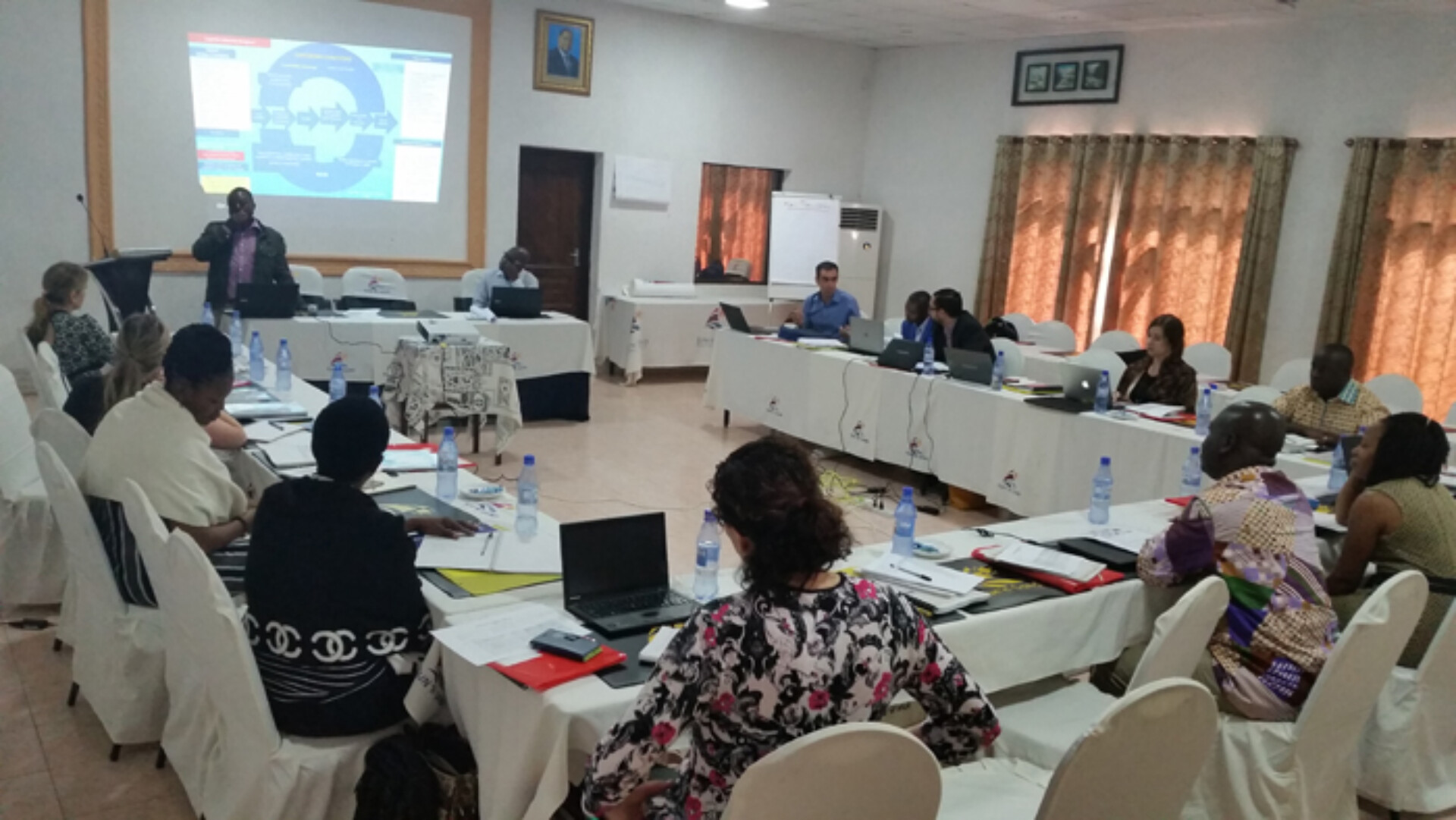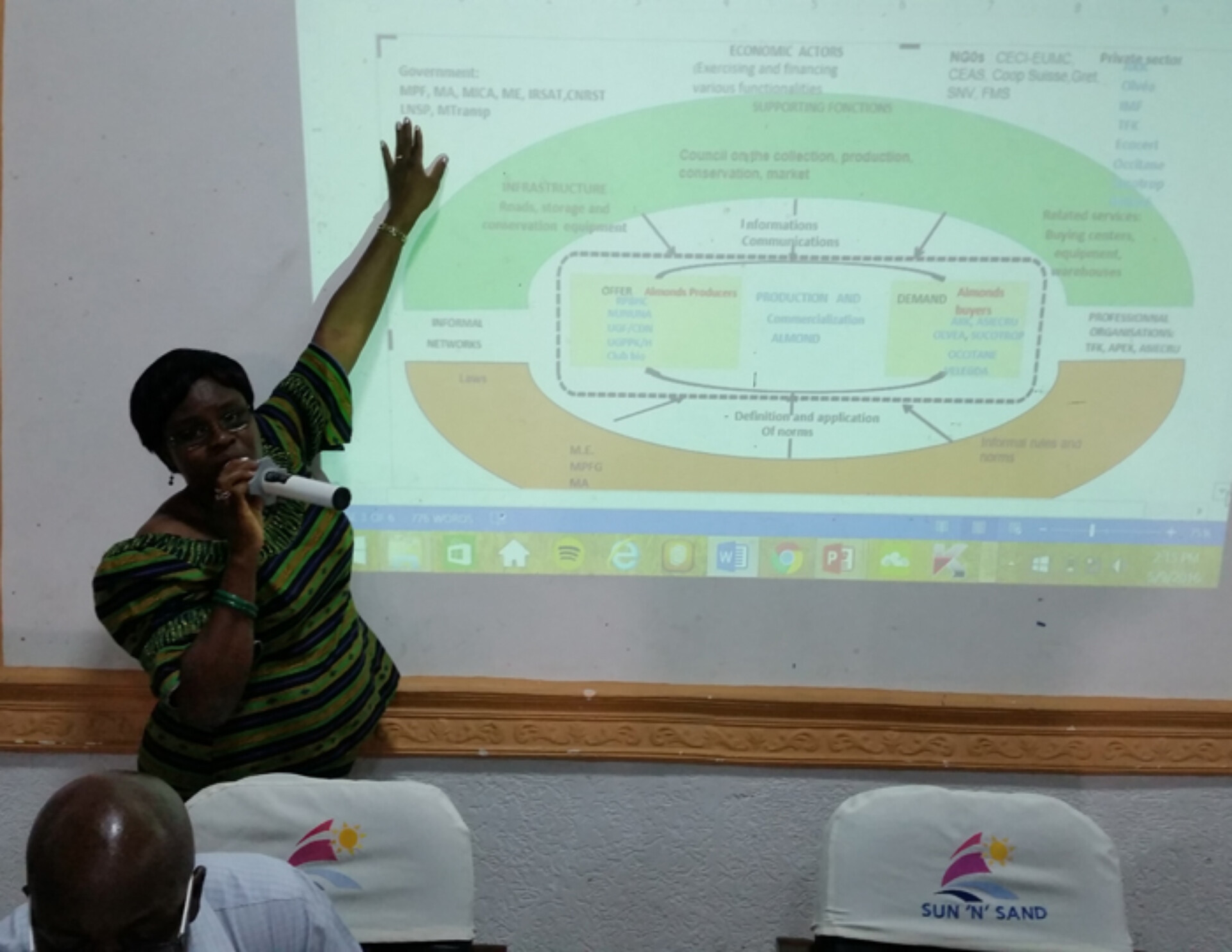
Uniterra: Helping African youth and women get access to markets
Youth and women are a majority in many African countries but they lack opportunities to improve their economic conditions due to various constraints related to culture, lack of skills and access to markets. There is a need to invest in youth and women in order to prepare the bright future of the continent.
It’s against this background that since 2015 Uniterra, a Canadian volunteer-sending program jointly managed by WUSC and CECI, has been supporting youth and women in six African countries to overcome challenges they face in participating in the value chain of goods and services to improve their economic conditions.
Based on lessons learned from the previous years, Uniterra teams from Malawi, Tanzania, Ghana, Burkina Faso held a regional meeting from May 9-14 in Malawi to discuss how to better support youth and women in these countries in the next four years.

By using the inclusive market systems approach, the Uniterra program focuses on identifying root causes of the market failure, building capacities, creating partnerships and replicating best practices to a wider audience who are not part of the target groups.
Agriculture is one of the key sectors that the Uniterra program is focusing on because it is one of the biggest economic sectors in many African countries. By facilitating the inclusion of youth and women in all aspects of the production chain, Uniterra helps them to overcome obstacles ranging from accessing land to getting information about proper market prices for their produces.
Currently, the agriculture programs focus on tea, milk, and legumes in Malawi; soybeans and guinea fowls in Ghana; fruits and vegetables in Tanzania; shea nuts, legumes, and cereals in Burkina Faso. In addition to agriculture, the Uniterra program also supports youth and women involved in tourism in Tanzania and residential construction in Ghana.
In Malawi for example, Uniterra helps youth and women involved in farming, tea plantations and legumes such as groundnuts to improve their productions and be able to sell them at a good price. These sectors provide opportunities for Malawian youth and women due to the availability of a market for tea, groundnuts, and milk in the country and abroad.
“The Malawian government is moving away from tobacco plantation and focusing on legumes as a product of export so there are opportunities for producers of legumes to find a market for their production,” Brown Banda, Malawi country director for World University Service Canada, one of the organisations implementing the Uniterra program.

Uniterra has also helped more than 300 farmers from Thyolo district in the southern part of Malawi to set up a cooperative that allows them to have a collective bargaining power and sell their products at a better price.
In Ghana, Uniterra works with youth and women involved in soybeans production to satisfy the high market demand both inside Ghana and in the region. In addition to problems related to accessing fertile land for farming, youth and women in northern Ghana find difficulties in getting a good price for their harvest due to lack of price information and the use of middlemen who pay farmers a low price.
Pricing is an issue and sometimes farmers are in a fix because they don’t know the best person to sell to, according to Kofi Sarkodie, Uniterra Sector program officer in Ghana. Uniterra will be also helping soybean farmers to access loans and proper irrigation techniques to tackle effects of climate change and proper storage facilities.
In Tanzania, youth and women don’t take agriculture as a lucrative business despite opportunities of selling fruits and vegetables on the European markets at an attractive price. Uniterra will help youth and women interested in this business to deal with problems such as lack of access to storage facilities and transporting their harvest to big cities like Arusha and Dar Es Salaam where they can be shipped to European markets at a profitable price.
Shea nuts are among the products in high demand in Burkina Faso but women, who dominate this industry don’t get profit because they are not organised and they lack proper infrastructure. Uniterra is working with them to overcome challenges related to shea nuts collection and storage as well as facilitating access to markets in France, China, and Taiwan where these products are used to make shea butter.

“If women get the capacity to collect more shea nuts and are able to sell them at a better price, I am sure that their living conditions will improve and the whole country will benefit,” Fatimata Lankoande, WUSC Burkina Faso country director said.
